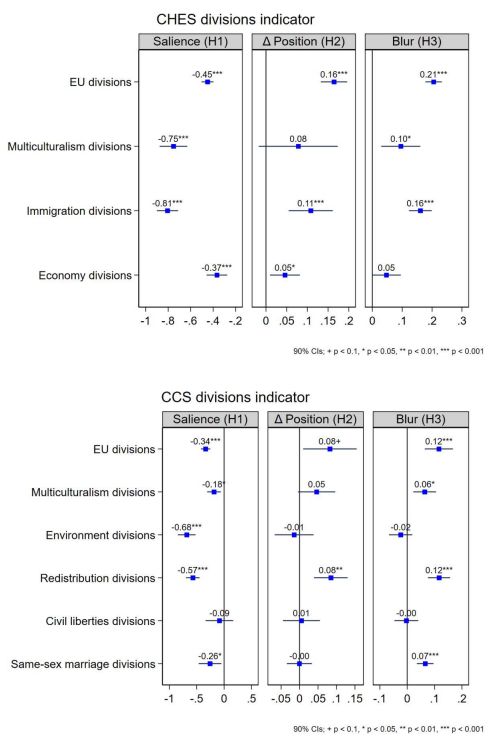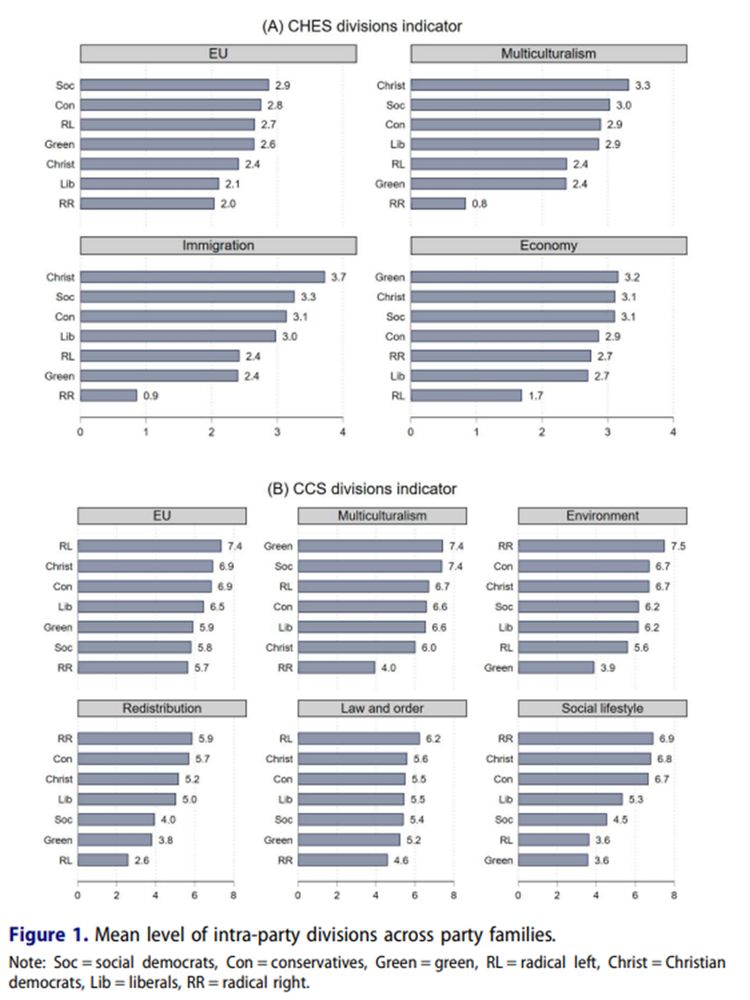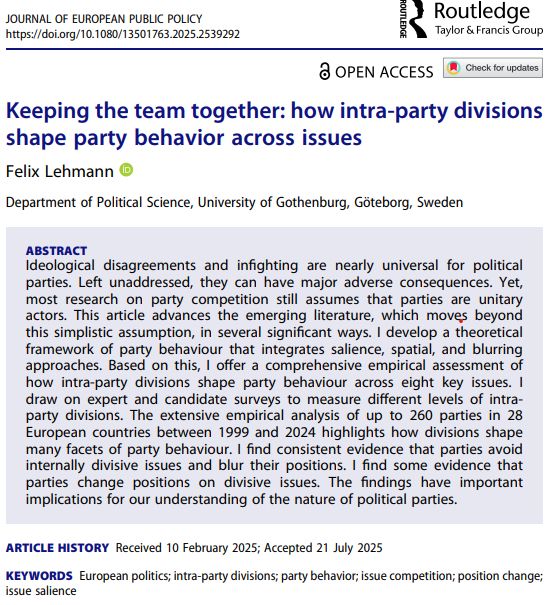
Felix Lehmann
@felixlehmann.bsky.social
PhD candidate in political science @ University of Gothenburg | party competition | intra-party politics | European integration | immigration | radical right
Political scientists most frequently incorporate elements of law and economics. We find no significant evidence that interdisciplinary work gets fewer (or more) citations than unidisciplinary contributions. 5/6


October 24, 2025 at 7:20 AM
Political scientists most frequently incorporate elements of law and economics. We find no significant evidence that interdisciplinary work gets fewer (or more) citations than unidisciplinary contributions. 5/6
I find that parties tend to behave in line with unity-seeking ambitions. Avoidance seems to be the go-to strategy for divided parties. Preference heterogeneity suffices to lower salience. On most issues, divided parties have blurrier positions. On some issues, they change divisive positions.
7/11
7/11

August 1, 2025 at 7:52 AM
I find that parties tend to behave in line with unity-seeking ambitions. Avoidance seems to be the go-to strategy for divided parties. Preference heterogeneity suffices to lower salience. On most issues, divided parties have blurrier positions. On some issues, they change divisive positions.
7/11
7/11
Following @nilssteiner.bsky.social and Matthias Mader, I use CCS data to measure preference heterogeneity. journals.sagepub.com/doi/abs/10.1....
I then use updated CHES data to measure more public disagreements as perceived by experts.
6/11
I then use updated CHES data to measure more public disagreements as perceived by experts.
6/11

August 1, 2025 at 7:52 AM
Following @nilssteiner.bsky.social and Matthias Mader, I use CCS data to measure preference heterogeneity. journals.sagepub.com/doi/abs/10.1....
I then use updated CHES data to measure more public disagreements as perceived by experts.
6/11
I then use updated CHES data to measure more public disagreements as perceived by experts.
6/11
Why do parties do what they do? Excited to share my 2nd dissertation paper, just published in @jeppjournal.bsky.social
In the paper, I argue that parties seek internal unity and try to keep the team together: www.tandfonline.com/doi/full/10....
1/11 🧵
In the paper, I argue that parties seek internal unity and try to keep the team together: www.tandfonline.com/doi/full/10....
1/11 🧵

August 1, 2025 at 7:52 AM
Why do parties do what they do? Excited to share my 2nd dissertation paper, just published in @jeppjournal.bsky.social
In the paper, I argue that parties seek internal unity and try to keep the team together: www.tandfonline.com/doi/full/10....
1/11 🧵
In the paper, I argue that parties seek internal unity and try to keep the team together: www.tandfonline.com/doi/full/10....
1/11 🧵
Looking forward to presenting two papers at #EPSA2025.
In two great panels, I will present work on 1) the state of party responsiveness in the EU and 2) the drivers of party responsiveness.
If that sounds interesting, consider joining on Thursday either at 13.10 or 16.50.
In two great panels, I will present work on 1) the state of party responsiveness in the EU and 2) the drivers of party responsiveness.
If that sounds interesting, consider joining on Thursday either at 13.10 or 16.50.


June 24, 2025 at 8:22 PM
Looking forward to presenting two papers at #EPSA2025.
In two great panels, I will present work on 1) the state of party responsiveness in the EU and 2) the drivers of party responsiveness.
If that sounds interesting, consider joining on Thursday either at 13.10 or 16.50.
In two great panels, I will present work on 1) the state of party responsiveness in the EU and 2) the drivers of party responsiveness.
If that sounds interesting, consider joining on Thursday either at 13.10 or 16.50.

